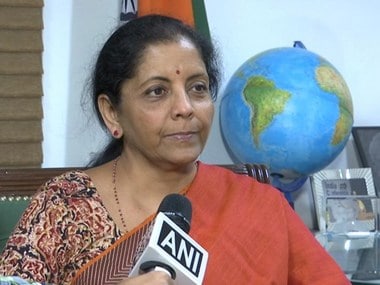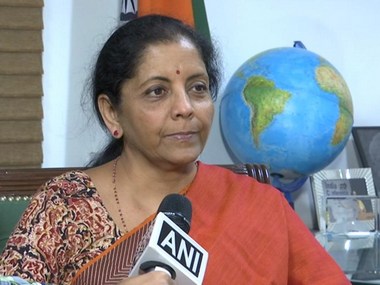It is not for nothing that they say size is not everything. As India wakes up to the week after a big-bang announcement of mergers meant to consolidate 10 public sector banks into four behemoths, niggling questions remain: Is this more of the same from the point of view of what public sector banks essentially do? Is this a headline management attempt by a fiscally-strapped Narendra Modi government to divert attention from a severe economic slowdown? The answers to those questions are blowing in the last of the monsoon winds caressing the imposing structure of the North Block housing the Finance Ministry, but it is clear that a lot will depend on the fine print and the execution of the mega-mergers. In reducing the number of state-controlled banks to 10 from 27, the BJP-led government has made a good start but there is more to this than consolidation if the intention is to avoid the sins of the past. In one sense, you could say what Finance Minister Nirmala Sitharaman announced is a key milestone in a mammoth effort to undo the wave of nationalisation of banks that the then Prime Minister Indira Gandhi’s Congress government kicked off in 1969. But that would be a romantic, flawed view. [caption id=“attachment_6461881” align=“alignleft” width=“380”]  File image of Union Finance Minister Nirmala Sitharaman. ANI[/caption] Some of the fundamental objectives for which banks were nationalised in the first place remain critical for managing India’s complex economy. It is important for us to divide the discourse into three components and look for signals and actions in each to see which of these is being addressed and which not. First up, if the credit squeeze caused by the overhang of non-performing assets (NPAs) problem can be undone by recapitalising the new giants fast, it would at least partially address the slowdown issue currently haunting the economy. However, as R Jagannathan, one of the government’s most sympathetic critics told a TV show, PSU bank boards may be so tied down in merger details over the next couple of years that credit expansion may take a hit. That would be counter-productive for any economic revival. Public sector banks are still sitting on a Rs 8-lakh-crore pile of NPAs. Secondly, what is the guarantee that bank mergers would lead to more prudent lending and prevent the recurrence of the NPA mess we are in? It is true that measures such as a governance overhaul through a professional, flexible board-run mechanism, effective training and the presence of Chief Risk Officers can police loans and raise administrative efficiency, but there is also a parallel syndrome of risk aversion. Two decades ago, public sector bank executives had to be persuaded to lend more in the aftermath of the Indian Bank scam when they started fearing investigations by law enforcers such as the Central Board of Investigation (CBI) into what from the banks’ view would just be a bad business decision.
Overcautious lending leads to a growth crunch while the other extreme is a morally questionable aspect of a taxpayer bailout of state-controlled banks.
As of now, as some commentators argue consolidation only clubs small problems into a big problem. Connected with all this is the fundamental principle that the nationalisation of banks was aimed at boosting credit for development-oriented goals best seen in “priority sector” loans for agriculture, small businesses, housing and education. While we can say that home loans can now be safely left to private lenders or non-banking financial companies (NBFCs) in a reasonably stronger economy, farmers and small and medium enterprises (SMEs) still need inspired help in an economy vulnerable to monsoons on the one hand and pressures of global competition on the other. Public sector banks account for about 70 percent of agricultural credit extended by banks in a system in which more than a quarter of farm credit comes from professional money lenders (not to be confused with private banks!). State-controlled banks also account for nearly 40% of lending to micro, small and medium enterprises (MSMEs), though their share has come down steeply in recent years. It must be remembered that successful private lenders such as HDFC Bank rely heavily on miscellaneous service fees and affluent urban customers for their profits. The public policy burden of what we may call social banking remains with state-controlled banks. In this backdrop, pro-market critics want a fairy-tale scenario in which autonomous PSU banks will not be supervised by bureaucrats in the Finance Ministry. They forget that taxpayers fund the banks and citizens are the end beneficiaries. Wholesale privatisation or thoughtless autonomy to bank boards may fall short in addressing public policy goals. The recommendation of the PJ Nayak Committee that wanted government stakes in public sector banks brought down to below 51 percent must be weighed alongside the social goals of banking. The panel’s views on governance seem to be in favour with the government already. It is nearly impossible to imagine financial inclusion on the scale the government is talking about without public sector banks playing a pivotal role. One of the aims of nationalisation was an increase public confidence in banking in a largely unbanked country. The unfinished task of financial inclusion forms part of the aim.
The real issue, therefore, is how to juggle the spirit of 1969 with that of 1991, when the then finance minister Manmohan Singh set up the Narasimham Committee for financial reforms to undo some of the sins of 1969 that resulted in reckless lending, undue politicisation and a fiscal burden on the state.
Bank mergers may involve a clean-up of balance sheets to start a new credit party, but it is important to have a qualitative restructuring of financial services so that the moral hazards of loan waivers for farmers and ‘haircuts’for industrial loans going bad are not lost sight of. There is a larger context of profound technological changes in which Nirmala Sitharaman’s big-bang move must be negotiated. One shudders to think of what will happen to public sector banks in the light of what has already happened to Air India and BSNL that have faced intense competition from private players entering with new technologies to aid them. What we need next is a proper roadmap with an underlying clarity on what must go and what must stay. (The writer is a senior journalist and commentator. He tweets as @madversity)


)
)
)
)
)
)
)
)
)



